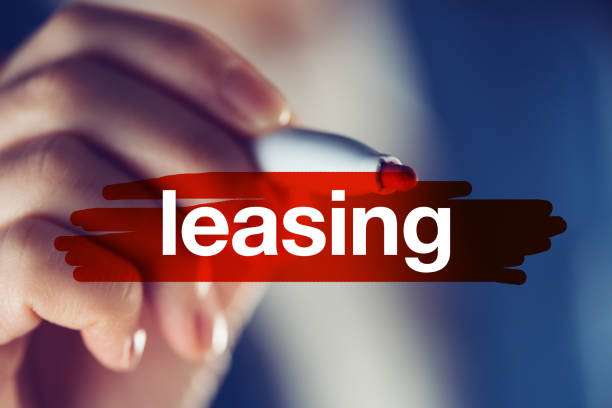Why Aircraft Leasing Is The Smarter Choice For Growing Businesses
 25 August, 2025
25 August, 2025
When a business is growing fast, every decision counts, and the way you move matters.
For companies expanding into new regions, improving logistics, or streamlining executive travel, access to aviation isn’t just a convenience. It’s a strategic advantage. But here’s the catch: owning an aircraft can quietly become more of a burden than a boost.
Buying ties up capital, locks you into long-term commitments, and demands ongoing time, money, and management, all of which could be better spent scaling your core business. That’s why more startups and growth-stage companies are choosing to lease instead.

Aircraft leasing offers a smarter way forward. It gives you access without the baggage. Flexibility without the financial drag. And scalability that matches your business pace, not holds it back.
This isn’t about cutting corners. It’s about choosing the structure that supports speed, stability, and smart expansion. Let’s break down why leasing outperforms buying, especially when growth is your top priority.
Ownership Is a Heavy Investment, And a Heavier Commitment
Buying an aircraft might sound like a power move. But for a business in growth mode, it often adds more weight than lift.
The upfront cost is only the beginning. Purchasing an aircraft ties up a significant chunk of capital that could otherwise be fueling product development, market expansion, or team growth. That’s money locked into a depreciating asset, one that begins losing value the moment it leaves the hangar.
But the cost of ownership doesn’t stop with the price tag. There’s insurance, storage, crew, fuel management, and an ongoing schedule of maintenance and compliance. Every hour that an aircraft is grounded for repairs or paperwork is time and money lost.
And if your business model evolves? If market conditions shift? Selling an owned aircraft is neither fast nor easy. You’re stuck with an asset that may no longer fit your needs, but still drains your resources.
For fast-growing companies, agility matters. And ownership, by its very nature, limits your ability to pivot. It turns a strategic asset into a long-term obligation, one that doesn’t always keep pace with the business it was meant to serve.
Why Leasing Makes Strategic Sense for Growing Businesses
Leasing an aircraft isn’t about settling for less; it’s about structuring smarter. For companies that need to stay flexible, financially agile, and operationally lean, leasing offers clear, strategic advantages.

Here’s why it works:
Capital Should Stay Where It Belongs: Inside Your Business
- No massive upfront purchase
- Free up cash for scaling operations, marketing, hiring, or tech
- Avoid tying millions into a single, non-core asset
Flexibility That Matches Your Growth Curve
- Need to scale up? Add capacity without long delays
- Want to scale down? No long-term disposal issues
- Lease terms can adapt to changing business cycles or seasonal demand.
Access to Newer, More Efficient Aircraft
- Leasing gives you the option to operate modern, fuel-efficient models
- Better technology, better performance, better brand impression
- No aging fleet issues or costly upgrades down the line
Maintenance? Compliance? Handled.
- Many lease agreements include maintenance packages or shared responsibilities
- Less time managing inspections, certifications, or repair schedules
- Focus stays on core business, not aviation admin.
Predictable Costs. Minimal Surprises.
- Fixed, scheduled payments that simplify budgeting
- No sudden repair costs or unplanned capital injections
- Helps maintain a cleaner balance sheet and better credit ratios
The Financial Equation: Leasing vs. Buying
When you strip away the assumptions and look at the numbers, leasing makes a compelling case, especially for startups and growth-stage companies that need to protect their capital while staying operationally competitive.

Let’s break it down:
| Factor | Buying | Leasing |
| Upfront Capital | High: Multi-million-dollar purchase | Loq: Minimal entry cost |
| Asset Ownership | Yes, but depreciates rapidly | No, but access remains full |
| Depreciation Risk | Business absorbs all depreciation | Lessor absorbs |
| Maintenance Responsibility | Full: Owner handles all upkeep & compliance | Often shared or handled by the lessor |
| Cash Flow Impact | Heavy, inconsistent, tied to compliance | Predictable, structured payments |
| Exit Flexibility | Difficult: Must resell or liquidate | Easy: Simple return or renew at lease end |
Scenario: A Business Expanding Across Regional Hubs
Let’s say a company wants to connect operations between Pakistan, the Middle East, and Central Asia. Buying an aircraft may cost $8–10 million upfront, excluding crew, hangar, fuel, and support infrastructure. That’s capital locked for years.
In contrast, leasing allows the company to:
- Deploy within months, not years
- Preserve 80–90% of capital for growth and operations
- Maintain flexibility if business needs shift regionally
Over a 5–7 year period, the total cost of ownership often exceeds leasing by 20–30%, without delivering the same level of adaptability or speed.
Bottom line: Leasing aligns with financial discipline. It preserves liquidity, minimizes exposure, and supports smarter scaling, all without compromising access to reliable, high-performance aviation.
Strategic Use Cases for Growing Businesses
Aircraft leasing isn’t just for large airlines. Today, a growing number of mid-sized companies and agile startups are leveraging aviation to gain speed, efficiency, and a competitive edge, without the burden of full ownership.

Here are some high-impact use cases where leasing shines:
Regional Logistics & Express Delivery
For companies expanding supply chains or building fast-track delivery routes, leased aircraft provide timely and flexible service to regional hubs—especially in underserved or emerging markets.
Who benefits:
- TCS, Pakistan’s leading courier and logistics provider, utilizes leased aircraft to ensure same-day delivery across distant cities, overcoming ground transport delays.
- Other courier services like Leopard Courier and M&P Express also rely on leased aircraft to maintain reliability and speed in their delivery networks.
Executive & Business Travel
Leasing allows senior leadership, sales teams, or consultants to cover more ground quickly and with greater control than commercial flights, projecting professionalism and operational efficiency.
Who benefits:
- Consulting firms often lease private aircraft to facilitate multi-city client engagements and executive travel.
- Investment groups and rapidly expanding enterprises use leasing to maintain flexibility and responsiveness, supporting business growth and confidence.
Humanitarian, Healthcare, or Relief Operations
Organizations operating in crisis zones or disaster-affected areas require urgent deployment options. Leasing offers immediate access to appropriate aircraft without long-term capital commitments.
Who benefits:
- NGOs like Edhi Foundation and health-focused logistics companies use leased aircraft to deliver emergency supplies and personnel swiftly across remote or difficult terrain.
- Government contractors involved in relief operations similarly depend on leasing to maintain operational readiness.
Tabani Corp: A Legacy Built in the Skies
When it comes to aviation, Tabani Corp doesn’t just participate, it leads with experience.
In 1993, Tabani Corp made history by launching Pakistan’s first private-sector commercial airline under the Tabani Aviation Division. For nearly 14 years, Aero Asia Airlines connected millions of passengers and businesses, becoming the largest private airline in the country. With operations spanning passenger travel, cargo, and courier services, it set the benchmark for what private aviation could achieve in Pakistan.
By 2006, after serving over one million passengers annually, Tabani Corp made a strategic exit from the airline industry, selling Aero Asia to a UK group. This move reflected foresight, business maturity, and global thinking.
But our aviation journey didn’t end there.
Tabani Corp has since remained active in aviation logistics and support services, including holding authorizations for the sale of aviation-grade lubricants from industry-leading brands like Shell and Mobil. Today, we leverage that legacy, network, and deep operational knowledge to offer aircraft leasing solutions designed for the next generation of business.
For startups and growing enterprises, aviation shouldn’t be a gamble; it should be a growth lever. With Tabani Corp, you gain more than access to aircraft. You gain a partner who’s flown the path, seen the industry evolve, and knows what it takes to succeed, in the air and on the ground.
Because what’s good for Pakistan and for business is good for growth.
Choose Altitude Without the Burden
In business, speed and adaptability often determine who leads and who follows. For startups and growing enterprises, the ability to move quickly, without tying up capital or being weighed down by long-term commitments, is not just an advantage, it’s a necessity.
Aircraft leasing gives you that advantage. It delivers the reach, reliability, and professionalism of aviation, without the liabilities of ownership. While buying may offer control, leasing offers something far more valuable in a growth phase: freedom.
When that freedom is backed by experience, foresight, and a deep understanding of aviation, as with Tabani Corp, it becomes a launchpad, not a risk.

